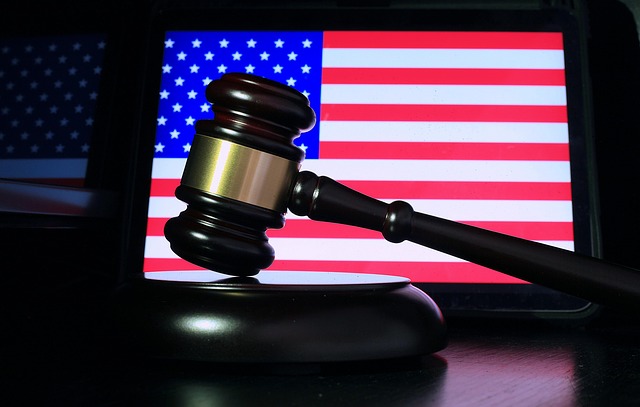Successful business debt collection through corporate litigation demands navigating intricate legal complexities. This involves in-depth knowledge of contracts, regulatory compliance, and dispute resolution mechanisms. Meticulous documentation, adherence to debt collection laws, and ethical practices are crucial for recovering debts effectively while mitigating risks. In court, robust evidence presentation using organized records and visual aids is key to securing favorable outcomes in corporate litigation scenarios.
In today’s competitive business landscape, effective debt collection is crucial for maintaining financial stability. This article serves as a comprehensive guide for businesses navigating the complex world of corporate litigation in debt collection cases. We explore key legal strategies, rights and responsibilities, and best practices for documenting evidence, ensuring success in court. Understanding the intricacies of corporate litigation is essential for businesses aiming to recover debts efficiently while adhering to legal requirements.
- Understanding Corporate Litigation: Navigating Legal Complexities
- Key Legal Strategies for Effective Debt Collection
- Rights and Responsibilities of Businesses Involved in Debt Collection Cases
- Best Practices for Documenting and Presenting Evidence in Court
Understanding Corporate Litigation: Navigating Legal Complexities

Navigating legal complexities is a critical aspect of successful corporate litigation in business debt collection cases. Corporate litigation involves intricate procedures, detailed documentation, and adherence to strict legal frameworks. Understanding these intricacies is paramount for businesses aiming to recover debts effectively while mitigating potential risks. The process demands a deep knowledge of contracts, regulatory compliance, and various dispute resolution mechanisms, ensuring every step aligns with legal requirements.
This phase requires careful strategy formulation, comprehensive document review, and precise communication. Businesses must be prepared to defend their claims robustly while considering alternative solutions like negotiation or mediation. Proficiency in corporate litigation enables entities to protect their interests, secure favorable outcomes, and establish a solid foundation for long-term business success in debt collection endeavors.
Key Legal Strategies for Effective Debt Collection

When pursuing business debt collection cases, a robust legal strategy is paramount. One of the key strategies involves thorough documentation and record-keeping. Businesses should meticulously track all communication, contracts, and financial records related to the debtor. This not only strengthens their case but also provides a clear trail, which can be crucial in court or arbitration. Having comprehensive and organized documents can significantly impact the outcome of corporate litigation.
Another effective approach is to understand and adhere to relevant debt collection laws and regulations. Different jurisdictions have specific rules regarding debt recovery practices, including time frames for collecting debts and permitted communication methods with debtors. Staying informed about these legalities ensures compliance, mitigates potential legal pitfalls, and enhances the credibility of the collection process. Employing these strategies can streamline the debt collection process, leading to successful resolutions in corporate litigation scenarios.
Rights and Responsibilities of Businesses Involved in Debt Collection Cases

When involved in debt collection cases, businesses have specific rights and responsibilities that are crucial to navigating the legal landscape effectively. Firstly, they must adhere to fair debt collection practices as mandated by law, ensuring transparency and respect for the debtor’s rights. This includes providing clear notices, verifying the debt, and refraining from using abusive or deceptive tactics. Businesses are entitled to seek legal remedies through corporate litigation if necessary, but they must also ensure compliance with relevant regulations to avoid potential penalties.
Responsibilities extend to maintaining accurate records, documenting interactions with debtors, and staying informed about evolving laws and court rulings related to debt collection. They should also consider the ethical implications of their actions, as misconduct can lead to reputational damage and legal repercussions. By understanding and respecting these obligations, businesses can protect their interests while ensuring a fair process for all parties involved in corporate litigation.
Best Practices for Documenting and Presenting Evidence in Court

When navigating corporate litigation, meticulous documentation and robust evidence presentation are paramount to achieving a favorable outcome in debt collection cases. The first step involves maintaining comprehensive records throughout the entire process. This includes all contracts, financial transactions, communication logs, and any other documents relevant to the case. Organize these records in a structured manner to facilitate efficient retrieval and accurate representation.
During court proceedings, visually presenting evidence can significantly impact a judge’s decision. Utilize high-quality copies or digital formats to showcase key documents, ensuring they are easily readable and properly authenticated. Visual aids like charts, graphs, or summary exhibits can simplify complex financial data, making it more accessible for the tribunal to understand. Effective presentation techniques enhance the clarity of your arguments, demonstrating a strong understanding of the corporate litigation process.
In navigating complex corporate litigation, understanding the intricacies of debt collection cases is paramount. By employing key legal strategies, businesses can assert their rights while adhering to responsibilities outlined in these proceedings. Effective documentation and presentation of evidence are crucial for successful outcomes, ensuring that best practices are followed throughout the process. Armed with this legal guidance, businesses can confidently navigate the challenges of corporate litigation and resolve debt collection matters efficiently.
